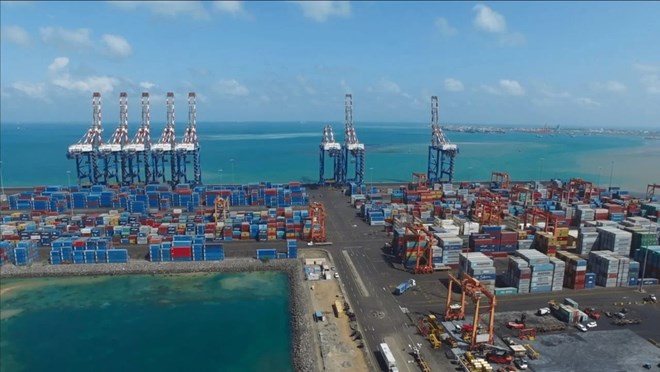
Monday June 24, 2024

Djibouti's high-level government delegation, including ministers of Economy, Finance, Infrastructure, and Trade, meets with World Bank representatives led by Nicolas Peltier-Thiberge, Global Director of Transport, to discuss the port's performance and strategies for improvement following the release of the CPPI 2023 report.
Djibouti (HOL) — Djibouti authorities are voicing strong dissatisfaction with their port's ranking in the 2023 Container Port Performance Index (CPPI), which placed it at 379th out of 405 global ports, raising concerns about the factors influencing its standing.
"The decline in our CPPI ranking must be interpreted with caution," stated Aboubaker Omar Hadi, President of the Djibouti Ports and Free Zones Authority. He emphasized the need for a nuanced understanding of the factors influencing port performance. He argued that the CPPI does not adequately account for the exceptional circumstances affecting its port—particularly those related to humanitarian commitments and regional security dynamics.
The concerns over the Port of Djibouti's ranking were not taken lightly. A high-level government delegation from Djibouti, including ministers of Economy, Finance and Industry, Infrastructure and Equipment, Trade and Tourism, and Budget, convened a strategic meeting last week. They were joined by a World Bank delegation led by Nicolas Peltier-Thiberge, Global Director of Transport. The meeting's focus was clear: to address the port's ranking issue head-on.
The CPPI 2023, produced by the World Bank and S&P Global Market Intelligence, evaluates ports based on vessel time in port. Djibouti's low ranking highlights significant operational inefficiencies. Key metrics contributing to this ranking include extended waiting times and berth idling. According to the CPPI report, only 60% of the total port time is used for cargo operations, with the remaining time spent on idle activities and waiting. This inefficiency is compounded by delays in clearance and coordination issues among various public agencies involved in port operations.
External factors have significantly impacted Djibouti's port performance. Heightened security measures in the Red Sea and rigorous verification procedures for cargo bound for Yemen, which have been in place since September 2023, have extended ship waiting times. Additionally, the United Nations Verification and Inspection Mechanism (UNVIM) vessels, which transit through Djibouti for inspections, have further contributed to these delays.
When compared to other regional ports, Djibouti's performance is a mixed bag. Sub-Saharan African ports such as Dar Es Salaam and Lomé have seen improvements in average arrival times, driving better rankings. However, Djibouti faces unique challenges due to its strategic location and the external pressures of handling humanitarian cargo, which are less prominent in other regional ports.
Despite the challenges, the CPPI report has provided a roadmap for improvement. It has identified key areas where Djibouti can make meaningful strides. By reducing berth idle time and enhancing coordination among public agencies, Djibouti can take steps toward improving its port performance. Additionally, implementing better planning, preparation, and process streamlining can dramatically reduce the non-productive time spent in port. These measures, if implemented effectively, can lead to improved efficiency and higher rankings in future assessments.

The port of Djibouti / Credit: SGTD.